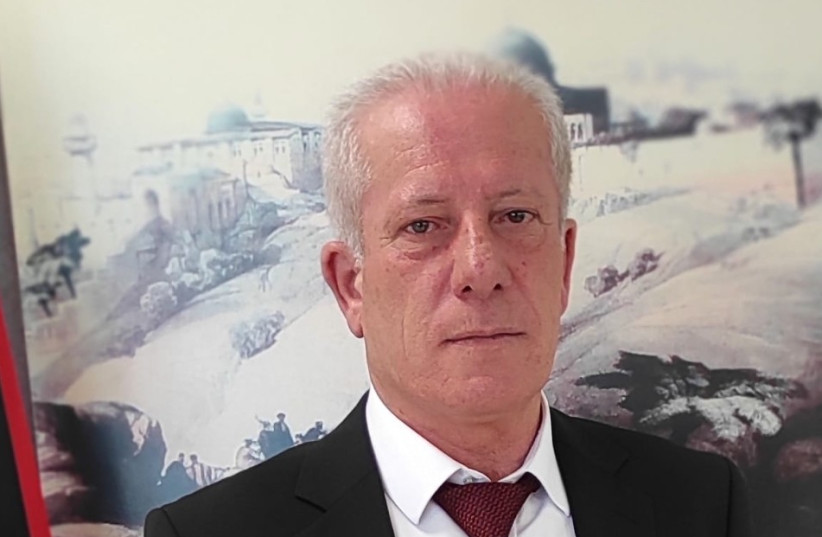The Israeli government’s measures and the US administration’s “hesitancy” are weakening the Palestinian Authority on a daily basis, a PA official said Monday.
The Israeli government’s measures and “violations” have made the PA lose its credibility among the Palestinians, Ahmad al-Deek, senior political adviser to PA Foreign Minister Riad Malki, said in an interview with The Jerusalem Post.
“The Israeli government says that it wants to strengthen the Palestinian Authority,” he said. “However, the [Israeli] government’s measures and actions on the ground are actually weakening the Palestinian Authority.”
Echoing growing disappointment in Ramallah with the government of Prime Minister Naftali Bennett, Deek said the Palestinians have still not seen any confidence-building measures by Israel.
“Where are the confidence-building measures that they talk about every now and then?” he asked. “These measures don’t exist. The [Israeli] government is stating day and night that it won’t negotiate with the Palestinians. It is closing the door to a political process with the Palestinians, while also eliminating the Palestinian issue.”

“Unfortunately, what we see from the Israeli government so far is that it is a government of settlement and settlers,” he added. “It is proceeding with implementing the ‘Deal of the Century,’ predetermining the future of Jerusalem and gradually annexing the West Bank. It is continuing to implement expansionist colonial projects.”
The “Deal of the Century” refers to former US president Donald Trump’s plan for Mideast peace, which has been categorically rejected by the Palestinians as a “conspiracy designed to liquidate the Palestinian cause.”
The PA leadership was ready to return to the negotiations with Israel “at any time, [but only] under the auspices of the Quartet and on the basis of international terms of reference,” Deek told the Post.
The international Quartet consists of the US, the United Nations, Russia and the European Union.
PA President Mahmoud Abbas has expressed readiness to resume the stalled peace process with Israel, but only through an international conference that would be held under the auspices of the Quartet.
He and other PA officials have insisted that the US should not be permitted to have a “monopoly” over the Israeli-Palestinian peace process.
“As President Abbas said, our hands are extended for peace and negotiations,” Deek said. “Regrettably, at present, there is no partner for peace in Israel.”
He also accused the US administration of undermining the PA and “making it appear in front of the Palestinians as if it were detached from reality.”
Deek expressed disappointment with the US administration for failing to fulfill its promises and commitments to the Palestinians.
“We have heard and seen positive talk and positions from the US administration about several issues, first and foremost a commitment to the two-state solution, a rejection of settlements and a demand for halting assaults carried out by extremist settlers against Palestinian civilians,” he said.
“Unfortunately, the US administration has not fulfilled these commitments until this moment,” he added. “We are astonished by the hesitancy of the US administration, especially regarding putting real pressure on the Israeli government to halt settlement construction. The settlements are a real threat to the prospects of implementing the two-state solution.”
The US disinclination “cannot be understood by the Palestinians,” Deek said.
Asked to explain what the Palestinians were expecting from the US administration, he said: “We want them to reopen the US Consulate in Jerusalem. We are also surprised that this administration, unlike previous administrations, has not appointed a special envoy for peace in the Middle East.
“We want the US administration to translate its words and stances into deeds and practical measures on the ground to save the two-state solution, create a suitable climate for restoring a political horizon and halt settler assaults, which are on the rise due to US hesitancy.”
Asked to explain the US administration’s alleged reluctance, Deek said it was clear to the Palestinians that the Palestinian issue is not at the top of the list of priorities of the Americans.
“It’s obvious that this administration is focusing its efforts and attention on other issues in the international arena,” he said. “The Palestinians, meanwhile, are paying the price because of ongoing assaults and abuses by the Israeli authorities and settlers, who are causing damage to Palestinians and their properties. We hope that this is not in the context of the administration’s policy of double standards in dealing with international issues.”
Despite the frustration with the US administration, the Palestinians are nevertheless interested in strengthening their relations with Washington, Deek said.
“We hear nice words through official channels with the US administration, but unfortunately there is no implementation on the ground,” he said. “If the US administration continues to sit on the fence, it will lose its credibility among the Palestinians. This would also constitute a real threat to chances of achieving a political settlement, particularly as settlement construction and settler assaults continue, as well as efforts to Judaize Jerusalem.”
“Israel is trying to unilaterally predetermine the outcome of any future negotiations on final-status issues,” Deek said. “By the time we return to the negotiations, there will be nothing left to talk about. This will ultimately lead to another explosion in the region.”
